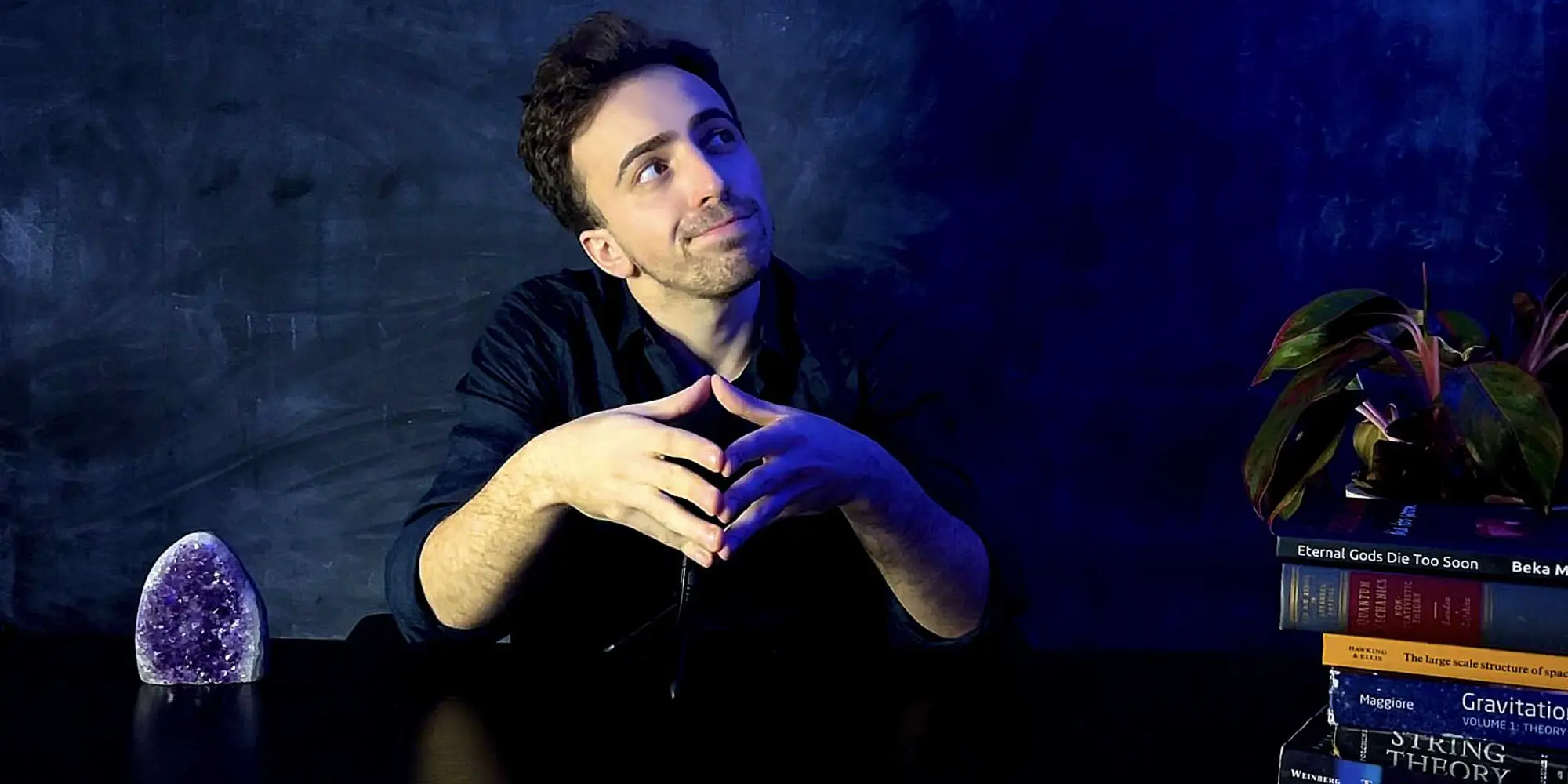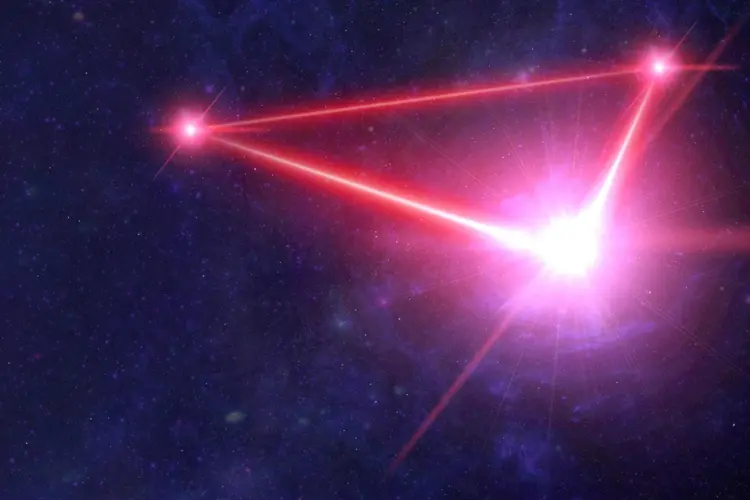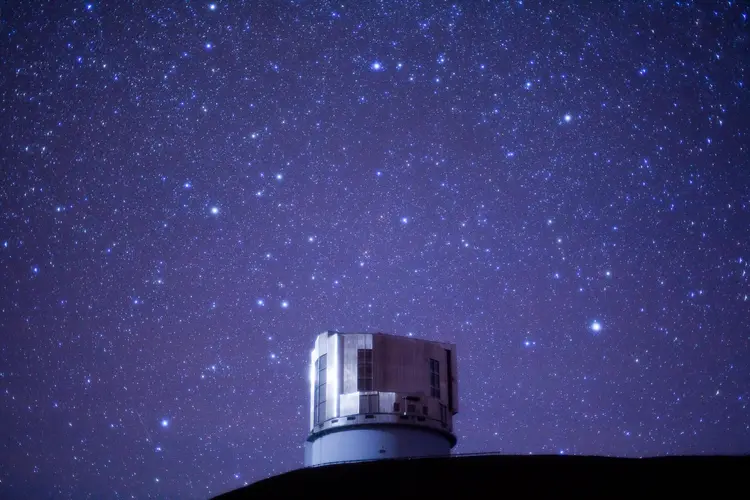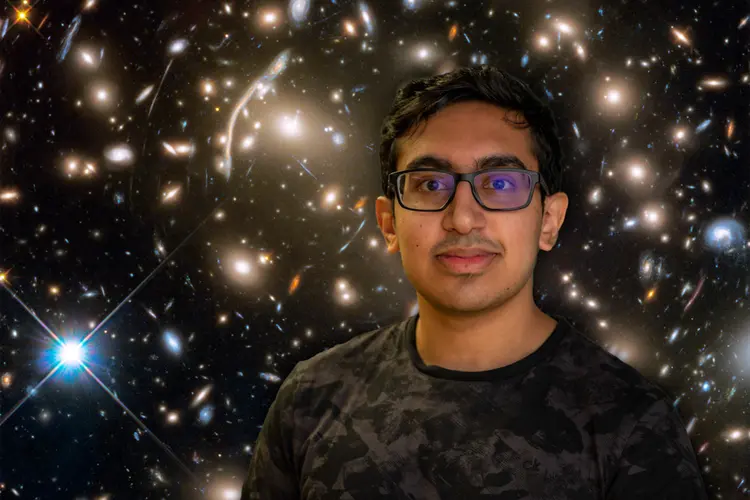
Physicist Looks to AI for New Answers to Universal Questions
Media Inquiries
The magical mystery of quantum mechanics thrills Beka Modrekiladze. The Carnegie Mellon University physics(opens in new window) doctoral student sees artificial intelligence(opens in new window) as the way to unlock its secrets.
"I want to understand what space-time is made of," he said. "Is it fundamental, or is it something else? One of the most important goals in my life is to understand the universe on a deeper level."
Quantum gravity is one way that Modrekiladze studies space-time, a model that joins the two concepts into a single idea.
"Space-time oscillates, and we can measure this oscillation to see how time slows down or accelerates, and we can detect those waveforms," he said. One challenge is that there is a lot of noise, so researchers rely on looking for waves similar to pre-existing candidates.
"That approach was philosophically unsatisfying for me," Modrekiladze said. "To really accelerate science, we have to think beyond our imagination."
That's where AI comes in.
"The universe doesn't always make sense," Modrekiladze said. "But mathematics helps us to close our eyes and follow its logic to get somewhere new. Mathematics sometimes deletes bias. That's how quantum mechanics was discovered. We followed the mathematics to see that the universe works in an unexpected way.
"AI is hyper mathematics in that sense, because it will push us out of our comfort zone to make even more new discoveries."
As a member of Carnegie Mellon's faculty for more than 50 years, Nobel Laureate Herbert "Herb" A. Simon conducted extensive research on human decision-making and problem- solving processes, which led to the creation of computational tools that both simulated and augmented human thinking. Simon's work with Allen Newell led to the invention of computer systems that could learn and adapt — a precursor to the modern-day field of artificial intelligence.
"Carnegie Mellon was the only choice for my Ph.D., because it has a really good physics department and it is literally the best at AI in the world," he said.
Modrekiladze published a paper in the Journal of High Energy Physics(opens in new window) earlier this year on gravitational wave signals from the collision of black holes and compact stars.
"It's the ultimate laboratory that the universe can offer," Modrekiladze said about the phenomenon. "The high energies are the perfect place to test our best theories. Being able to study gravitational waves which are the oscillations of space and time itself introduced a new era for astronomy."
Through the paper, Modrekiladze expanded the framework that can predict what type of gravitational waveforms researchers can expect when two black holes or a black hole and other exotic star material collide. As one of the applications of the JHEP paper, now a new type of gravitational signals, potentially opening new physics, will not be missed.
"Currently, we can detect gravitational wave signals, if their waveforms are already in the catalog," he said. "And to go beyond our expectations, the next step for me was to create generative AI, which would generate new types of possible waveforms.
"Through studying gravitation waves, now we can use mathematical models to see different properties that we can distinguish black holes from exotic stars. And answer the question if spacetime preserves parity. A simpler way to say this is if we show the universe itself in a mirror, can it tell the difference? We don't know if space time has that symmetry or not."
To help him think through his own philosophy and ideas around AI and quantum mechanics, Modrekiladze uses storytelling. In 2019 he published "Eternal Gods Die Too Soon," in which the main character is an AI entity similar to ChatGPT, which was released in November 2022.
"There are great sci-fi books that use ideas of general relativity," he said. "But there are not many books using the magic and craziness of quantum mechanics. It's usually hard to convey in a story, but at the same time, I had philosophical ideas I wanted to communicate and sci-fi was a framework where I could do that. Probably the most important part in that book for me was trying to answer the question, is mathematics discovered or invented? On the one hand, ancient Greeks wrote formulas and it was our creation. But then we discovered that the entire universe follows our invention. And not only now, but before people were created. That raised really big questions."
Physics Professor Ira Rothstein(opens in new window) advises Modrekiladze and said the broad interests his student brings in physics, computer science and other disciplines offers a lively perspective for their work.
"He's just a pleasure to have around. He makes the atmosphere exciting and energetic," Rothstein said.
A native of Tbilisi, Georgia, Modrekiladze was recognized by his home country as a Tsinandali Award distinguished nominee in 2022. The award honors Georgia's brightest young talents in arts and sciences.
"It's a prestigious award in Georgia, it's nice. It's a reassurance that what I'm doing is important," he said.
Researchers at @CarnegieMellon and @Harvard have an idea for exploring the outer reaches of space: look close to Earth.https://t.co/6ezEqN6sQ5 pic.twitter.com/tptfHuSRgq
— CMU Mellon College of Science (@CmuScience) September 9, 2023


